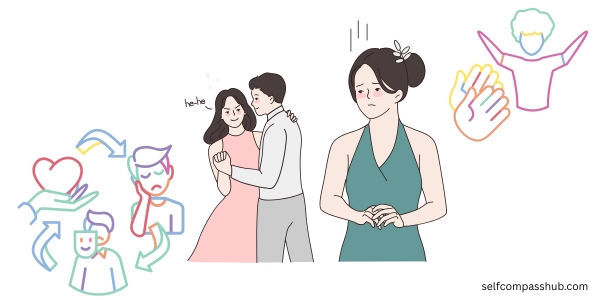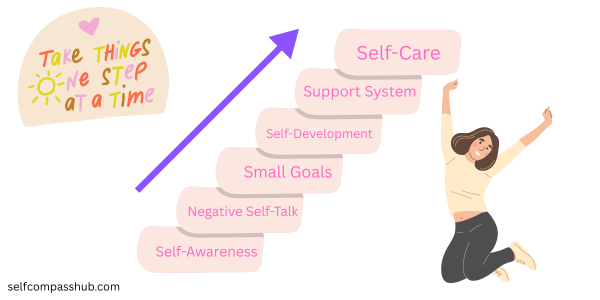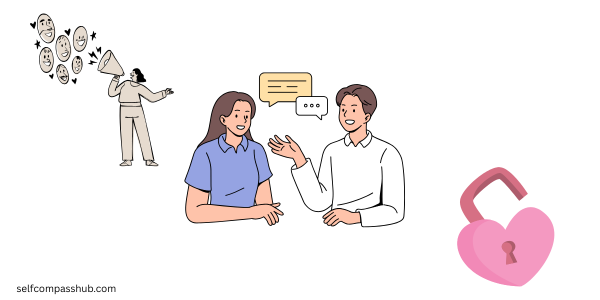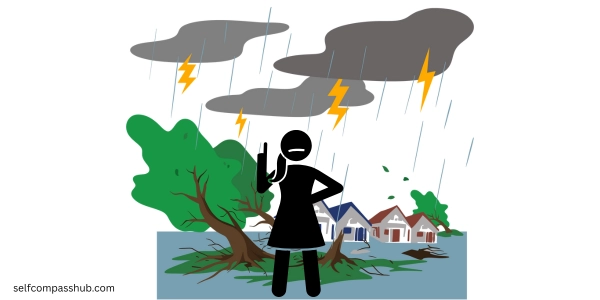Have you ever noticed how some people seem to effortlessly attract supportive, loving relationships while others repeatedly find themselves in partnerships that leave them feeling drained or diminished? The difference often lies not in luck or appearance, but in something far more fundamental: self-confidence.
When we truly value ourselves, we naturally attract others who value us too. Building genuine self-confidence isn’t about becoming perfect or flawless – it’s about embracing who you are, recognizing your worth, and carrying yourself with authentic assurance that communicates to potential partners that you expect to be treated with respect and care.
In this post, we’ll explore practical steps to build lasting self-confidence and how this internal shift can dramatically improve the quality of relationships you attract and maintain.
Why Self-Confidence Matters in Relationships
Self-confidence serves as the foundation for healthy relationships in several critical ways:
Establishes Healthy Boundaries: When you value yourself, you naturally create and maintain boundaries that protect your wellbeing. You can clearly communicate what behaviors are acceptable and which aren’t – without fear or excessive apologizing.
Reduces Dependency: Confident individuals don’t need relationships to feel complete. This independence creates healthier dynamics where you choose a partner because you want them, not because you need someone – anyone – to fill a void.
Attracts Respect: People who respect themselves attract others who will treat them with corresponding respect. Your self-confidence signals to potential partners how you expect to be treated.
Enables Vulnerability: True confidence allows you to be authentically vulnerable—sharing your true self without fear of rejection – which is essential for deep connection.
Signs of Low Self-Confidence in Relationships
Before we can build something new, we need to recognize what isn’t working. You might be operating from a place of low self-confidence if you notice these patterns:
People-Pleasing: Constantly prioritizing your partner’s needs and wants while neglecting your own, afraid that expressing your preferences might lead to conflict or rejection.
Settling: Accepting treatment that falls below what you deserve because you don’t believe you can attract something better or fear being alone.
Jealousy and Possessiveness: Excessive worry about your partner’s loyalty often stems from not believing you’re “enough” to keep them interested.
Avoiding Conflict: Swallowing legitimate concerns rather than addressing issues directly because you fear rocking the boat or being seen as “difficult.”
Seeking Constant Validation: Needing frequent reassurance about your worth and your partner’s feelings, which can create an exhausting dynamic.
Practical Steps to Build Self-Confidence
Building self-confidence isn’t an overnight process, but these actionable strategies can help you develop it steadily:
1. Practice Self-Awareness
Begin by understanding your current relationship with yourself. Keep a journal to track:
- Situations where you feel most insecure
- Common negative thoughts about yourself
- How these thoughts affect your relationship behaviors
Simply noticing these patterns without judgment is the first step toward change.
2. Challenge Negative Self-Talk
When you catch yourself thinking “I’m not good enough” or “No one could truly love me,” pause and ask:
- “Is this thought actually true?”
- “What evidence contradicts this belief?”
- “Would I speak this way to someone I care about?”
Replace these thoughts with more balanced perspectives: “I have valuable qualities to offer” or “I deserve a relationship where I’m appreciated.”
3. Set and Achieve Small Goals
Build confidence through progressive achievements:
- Start with manageable challenges slightly outside your comfort zone
- Acknowledge each success, no matter how small
- Gradually take on more significant challenges
Each accomplishment builds evidence that you are capable and worthy.
4. Invest in Self-Development
Developing new skills or knowledge boosts confidence naturally:
- Take a class in something you’ve always wanted to learn
- Read books on topics that interest you
- Pursue hobbies that bring you joy and fulfillment
Becoming more competent in areas that matter to you reinforces your sense of capability.
5. Practice Self-Care
How you treat yourself sets the standard for how others treat you:
- Maintain physical health through nutrition, exercise, and rest
- Create personal rituals that honor your emotional needs
- Set aside regular time for activities that rejuvenate you
When you consistently demonstrate that you value yourself, it becomes clear to others that they should value you too.
6. Expand Your Support System
Surround yourself with people who recognize your worth:
- Spend time with friends who lift you up rather than drain you
- Consider joining groups centered around shared interests
- If needed, work with a therapist who can help address deeper confidence issues
Positive relationships reinforce your sense of belonging and value.
How Improved Self-Confidence Changes Your Relationship Patterns
As your self-confidence grows, you’ll likely notice significant shifts in your relationship dynamics:
Attraction Patterns Change: You’ll find yourself drawn to people who reflect your higher self-regard, while feeling less attraction to those who don’t treat you well.
Communication Improves: You’ll express your needs and feelings more clearly and directly, without the fear that doing so will drive others away.
Healthy Vulnerability Emerges: True confidence allows you to share your authentic self – including imperfections and insecurities – without feeling diminished.
Drama Decreases: When you’re confident, you spend less energy on relationship games, jealousy, or seeking validation, leading to more peaceful connections.
Mutual Respect Develops: Equal partnerships form naturally when both people bring self-confidence to the relationship, creating balance and reciprocity.
Maintaining Self-Confidence Within Relationships
Even after developing self-confidence, relationships can sometimes challenge it. Here’s how to maintain your sense of self:
Preserve Your Identity: Continue pursuing your individual interests, friendships, and goals. A relationship should enhance your life, not replace it.
Handle Criticism Constructively: When your partner offers feedback, evaluate it objectively rather than taking it as evidence of your unworthiness. Not all criticism is accurate, and even valid critiques don’t define your value.
Navigate Disagreements With Assurance: Confident people can disagree respectfully, knowing that conflict doesn’t threaten the relationship’s foundation.
Check In With Yourself: Regularly assess how you feel in the relationship. Are you still honoring your values and boundaries? Are you compromising out of love or fear?
Remember Your Worth Is Constant: Your value doesn’t fluctuate based on relationship status or partner approval. You were whole before the relationship, and you remain whole within it.
Conclusion
Building self-confidence is perhaps the most important investment you can make in your relationship future. As you develop genuine self-assurance, you’ll naturally begin attracting partners who appreciate your authentic self and treat you with the respect you deserve.
This journey isn’t always linear – there will be setbacks and challenges along the way. But with each step you take toward truly valuing yourself, you move closer to the kind of relationships that nourish rather than deplete you.
Remember that confidence isn’t about perfection; it’s about accepting yourself fully and knowing that you deserve love that matches what you offer. Starting today, make one small change that honors your worth, and watch how your relationship world begins to transform.
What small step will you take today to build your self-confidence and attract healthier relationships?











